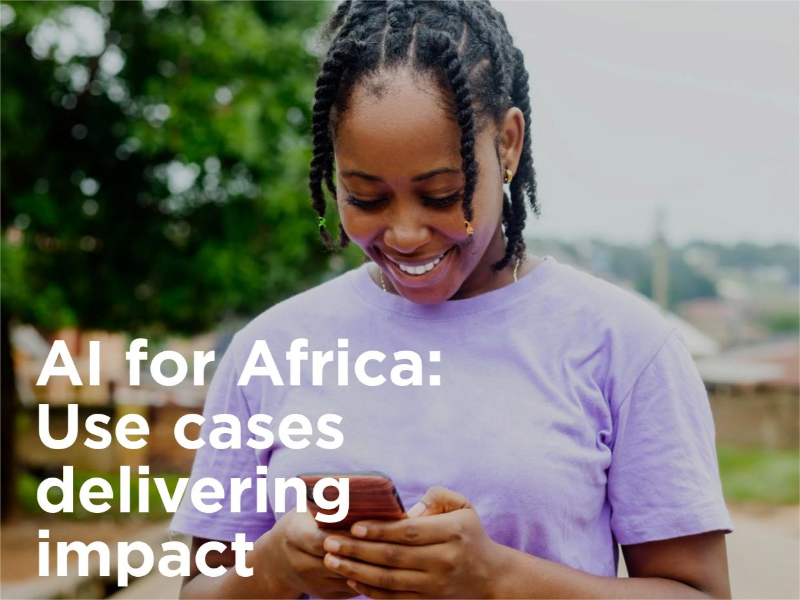- Agriculture and energy sectors poised for AI transformation.
- Africa’s potential to unlock nearly $3 trillion in value by 2030.
- strategic recommendations for overcoming challenges in AI adoption.
A recent report by the GSMA identifies Nigeria as a key player in leveraging artificial intelligence (AI) for socio-economic development and climate resilience, emphasising the country’s capacity to lead AI-driven innovation across Africa.
AI’s Transformative Potential in Nigeria
The GSMA‘s report, “AI for Africa: Use Cases Delivering Impact – Nigeria Deep Dive,” highlights the substantial opportunities presented by AI in critical sectors within Nigeria. Agriculture, a significant contributor to the country’s GDP and a vital source of employment for nearly 40% of the population stands to benefit immensely from AI-driven solutions. AI technologies can enhance productivity and food security by improving resource efficiency and market access. For instance, platforms like Crop2Cash’s FarmAdvice and ThriveAgric’s Agricultural Operating System provide farmers with tailored advice and financial services, enabling them to optimise their operations. However, challenges such as limited data availability, high costs of technology, and a significant digital skills gap among smallholder farmers hinder the widespread adoption of these innovations.
In the energy sector, Nigeria faces significant challenges, including an aging infrastructure and a heavy reliance on fossil fuels. The deployment of AI technologies remains nascent but holds considerable potential for improving energy distribution and reliability. Solutions such as Beacon Power Services’ AI-enabled grid management platform and Husk Power Systems’ AI-driven mini-grids can optimise energy usage and extend access to rural communities. These innovations are critical in addressing the pressing needs of the energy sector, providing both on-grid and off-grid systems to enhance efficiency and sustainability. Furthermore, AI can play a role in informing energy planning and supporting financing for solar appliances, helping to reduce energy poverty.
Overcoming Challenges for AI Adoption
Despite the promising opportunities, several key challenges must be addressed to fully leverage AI’s potential in Nigeria. Data availability and accessibility are crucial, as the lack of localised and high-quality data limits the customisation of AI solutions to meet local needs. Investments in localised data collection initiatives, including hardware and devices such as drones and IoT sensors, are essential for accelerating data availability across sectors.
Enhancing AI infrastructure and computing capabilities is also necessary to support scalable solutions. Investments in data centers and clean energy sources, along with the development of edge computing solutions for low-resource environments, will facilitate the effective deployment of AI technologies.
Furthermore, skills development is vital for fostering a workforce capable of driving AI innovation. Enhancing education in AI and data science, providing scholarships, and supporting capacity-building initiatives will empower Nigeria’s young population to harness the benefits of AI. Establishing supportive policies and fostering cross-sector collaboration is also critical to creating a conducive environment for AI growth.
The report emphasises that with appropriate investments and support, Nigeria can position itself as a leader in AI-driven development in Africa, harnessing these technologies to drive significant socio-economic progress.
About GSMA
The GSMA is a global organisation that unifies the mobile ecosystem to discover, develop, and deliver innovations essential for positive business environments and societal change. Their vision is to unlock the full power of connectivity, enabling people, industries, and society to thrive. Representing mobile operators and organisations across the mobile ecosystem, the GSMA focuses on three pillars: Connectivity for Good, Industry Services and Solutions, and Outreach. The organisation also hosts major events like the Mobile World Congress (MWC) to convene industry stakeholders, fostering collaboration and innovation in the mobile landscape.

